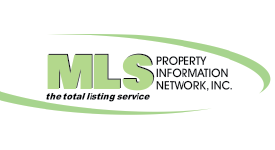
Despite the more recent interest in sustainable lifestyles, the practice and concept of urban agriculture has been around for centuries. Two of the most common forms of urban agriculture are allotments and community gardens. The term allotment is a term originating in Britain that refers to a piece of land cultivated by many people. Many use the terms interchangeably but there are some key differences. Both are important examples of urban agriculture and worth considering as part of a sustainable modern lifestyle.
What Are the Differences?
Though there are some fundamental differences in the setup of allotments and community gardens, both work toward the common goal of small-scale local agriculture on otherwise unused land. While community gardens in North America are managed and maintained by an entire collective, allotments have specific “tenants” who lease their own small portion of the land.
In an allotment, each tenant has their own small piece of something big. According to TripSavvy, the land is usually owned by local council churches, allotment associations or private landlords and leased out to local individuals or families. They cultivate their own particular plot of the land but help maintain shared spaces.
American community gardens are on public land or land owned by non-profit entities. The labor is largely volunteer-based with varying levels of organization depending on the specific garden.
What Are the Benefits?
Urban agriculture has multiple benefits regardless of location. Some of the biggest advantages include:
Allotments and community gardens help foster a sense of teamwork and pride among residents and neighbors working on a common goal.
Urban agriculture can increase the air quality by releasing oxygen and filtering toxins from nearby pollution. While it might not be a large-scale impact, it can positively affect microclimates and improve quality of life.
Community gardens provide access to fresh fruits and vegetables to “food deserts” and low-income areas. Allotments produce food for tenant families and other members of the community at large.
Urban agriculture provides a sustainable alternative to foods with high transportation-energy costs. In many urban areas you might have to drive or take public transportation to reach your nearest grocery store. Even organic foods you buy have probably traveled a long way to make it there. If you get your fruits and vegetables in a community garden, it not only saves time but saves energy as well.
Both allotments and community gardens offer an opportunity to teach gardening skills and share knowledge with those who might otherwise never have access to it. Children and others who have lived in cities their entire lives can benefit from useful skills and nutritional knowledge. Residents with mobility issues or disabilities can become involved in the garden's care to stay active and social.
Urban agriculture puts “unusable” land to good use without loud construction or outside business involvement. This means more peaceful neighborhoods and a cleaner environment while eliminating waste.
While urban agriculture has been around for a long time, it’s more important now than ever. The rise in awareness and popularity of sustainable living and food habits has made them easier to find and gain support for. This makes it easier for you to get involved in one yourself—or start a new one for your own community.
About the Author

David Hayes
Welcome to my website, your number one source for Winchester, Arlington, Cambridge, Belmont, Reading, Medford, Melrose, Stoneham, Somerville, Burlington, Boston, Brookline and surrounding towns.
Purchasing real estate should be an exciting yet seamless experience. Helping Buyers and Sellers with their real estate needs is what I love to do. My skills, experience and knowledge help me to make the real estate process as successful as possible for my clients. I am a full time, full service Realtor, as well as an experienced investment property owner, who enjoys working with both seasoned and first time Buyers and Sellers. My business is state-of-the-art and I continue to invest and use the best technological tools available. I consider Real Estate a collaborative profession. We will partner together to find the home of your dreams.
